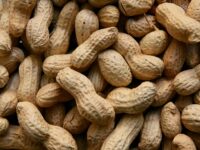It’s nearly impossible to go to the grocery store and not get overwhelmed by diet labels — “vegan friendly,” “keto this,” “paleo that.” Conflicting information and social trends may leave you wondering, “which one is healthiest?” As it turns out, the healthiest diet may not be one at all, for both your physical and mental health.
The connection between your brain and gut serves many purposes, one of them being weight regulation by sending hunger and fullness hormones to your brain. When your body is low on energy, your gut sends hunger hormones to your brain that stimulate appetite. When you eat, these hormones are suppressed, and fullness hormones are sent so you feel full. In addition, your gut and brain work together to promote energy storage. Seems simple, right?
As it turns out, the healthiest diet may not be one at all, for both your physical and mental health.
When you fast, it is a whole different story. A drastic decrease in caloric intake results in an increase in hunger hormones and reduction of fullness hormones. Your body is fighting to regulate energy storage by telling you to eat more. Dieting mimics the starvation state, whether it is a lack of calories or macronutrients. As a result, you become much hungrier.
A study from the New England Journal of Medicine had participants complete a 10 week dieting period. They found that 12 months after completing their diet, their hunger-fullness hormones had not been regulated, and many were still experiencing what some call, “extreme hunger.” Other studies have shown that 95 percent of dieters that initially lost weight gain it back, and two-thirds gained more than they lost.
Not only does dieting have an adverse effect on your body, it can negatively impact your mental health. Dr. Kiera Buchanan and Dr. Jeanie Sheffiel from the University of Queensland in 2015 studied the psychological effect of dieting, why dieting as a whole does not work, and how detrimental it can be. To start, many of the participants valued their self-worth based on their compliance with the diet. When compliant, dieters tended to think positively of themselves; however, Buchanan and Sheffel write, “When they deviated from their intended plan however, they described themselves negatively (i.e. ‘I’m weak’, ‘I have no will power’, ‘I’m a failure’).” Unsurprisingly, the study found that most dieters were motivated by wanting to change their body image. When participants failed to lose weight, they felt defeated. This failure not only pertains to their dieting efforts, but to other aspects of their life: romance, career, and fitness to name a few.
Many of the participants valued their self-worth based on their compliance with the diet.
The feeling of failure contributed to another major theme in their finding: the impact of dichotomous thinking; if dieters ate food non-compliant with their diet, they had failed in their efforts. Dieters reported missing major social events like weddings and birthdays out of fear that non-diet-compliant food would be present. This all-or-nothing thinking can also result in binge eating, eating to extreme fullness without the sense of control. Not only can binge eating result in physical discomfort and GI issues, it enhances the feeling of defeat and lack of self-worth.
With all of the conflicting information surrounding diets and health, it’s hard to tell what’s beneficial. The high-carb vegan diet and low-carb keto diet are both highly praised, even though they are nearly opposite. It’s not surprising that 95 percent of dieters regain the weight they lost through short-term diets, given the mental and physical impact of inadequate nutrients. While it may be tempting to indulge in these restrictive trends, it’s a whole lot healthier (and yummier) to eat the treats that your body is craving.
Journal of Health Psychology. (2015) DOI: 10.1177.159105315618000
New England Journal of Medicine. (2011) DOI: 10.1056/NEJMoa1105816






